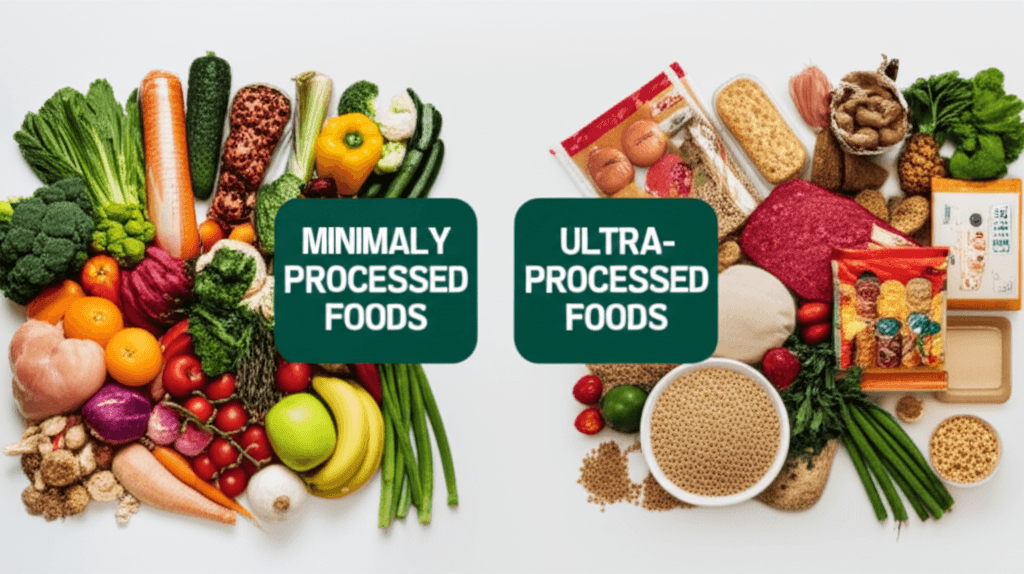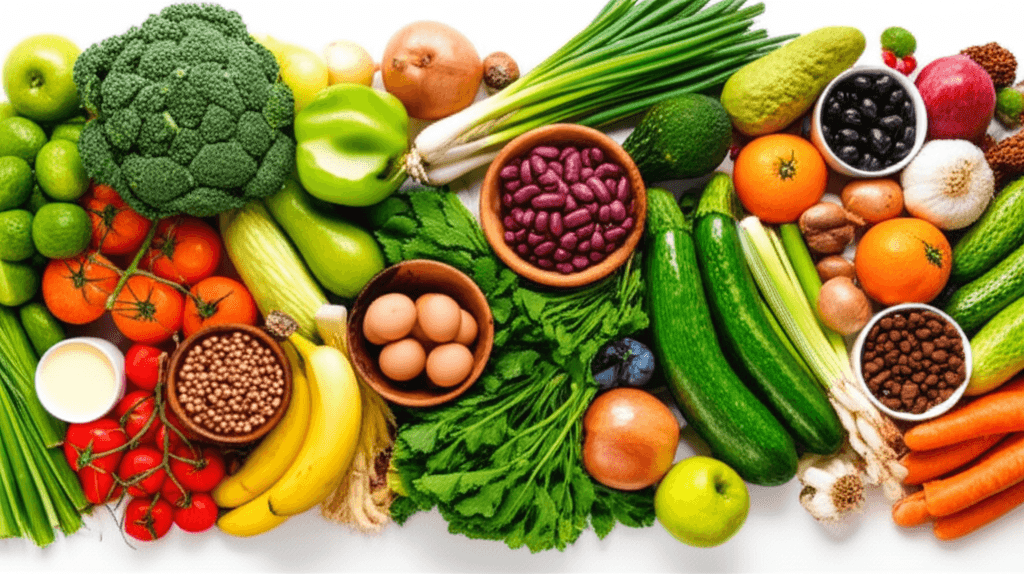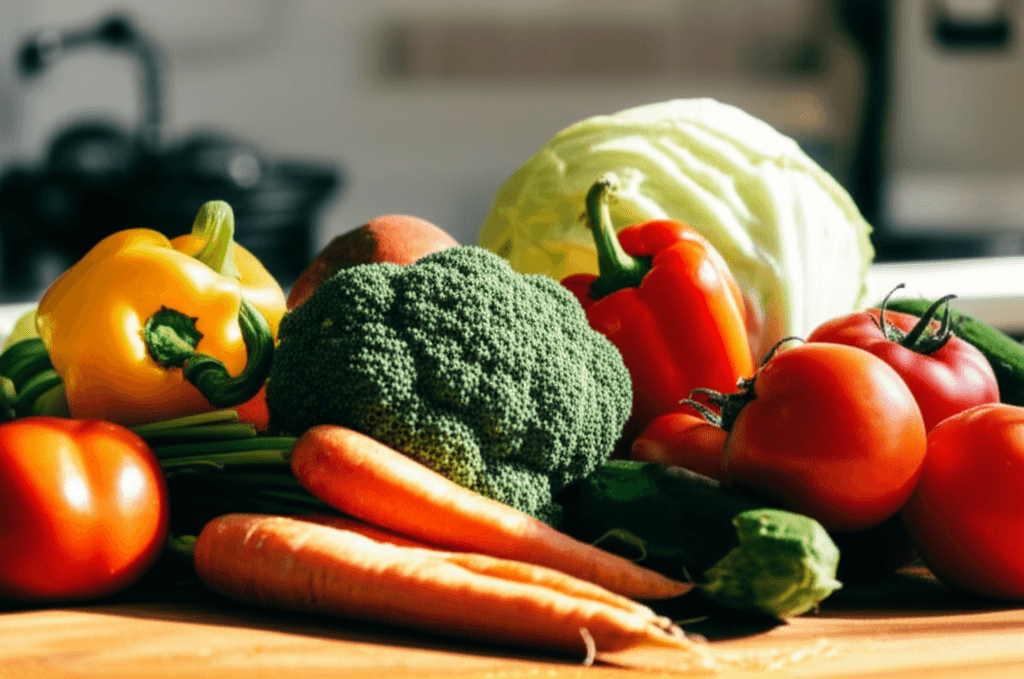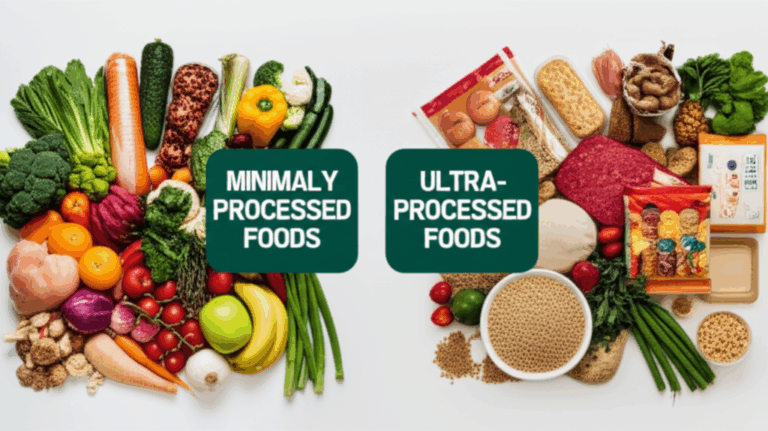Achieving sustainable fat loss often feels like a constant battle against cravings and calorie counts. Yet, groundbreaking research has unveiled a dietary approach that delivered twice the fat loss in just eight weeks, not by meticulously restricting calories, but by focusing on the quality and processing of food. This paradigm shift suggests that what you eat, rather than just how much, holds a powerful key to effective weight management.

The Groundbreaking Study: Minimally Processed vs. Ultra-Processed Foods
A significant experimental study, led by researchers at University College London (UCL) and UCLA, shed new light on how food processing impacts body weight and health outcomes. This research is particularly notable as it’s described as the longest experimental study of its kind comparing diets based on processing levels.
Study Design and Objectives
The clinical trial involved 55 adults from the United Kingdom who were overweight or had obesity. Participants were split into two groups and followed two distinct eight-week diets: a minimally processed diet (MPF) and an ultra-processed diet (UPF). Each group completed one diet before switching to the other after a four-week “washout period” where they resumed their normal eating habits.
Crucially, both diets adhered to the UK’s Eatwell Guide for a healthy, balanced diet, and participants were provided with more than enough food, instructed to eat as they normally would, without any explicit calorie restriction. The primary objective was to observe the impact of food processing on weight and body composition.
Key Findings: Doubled Fat Loss and Improved Body Composition
The results were compelling: while both groups experienced weight loss, participants on the minimally processed diet saw a 2.06% reduction in weight, compared to a 1.05% reduction on the ultra-processed diet. In essence, the minimally processed diet led to twice as much weight loss.
Furthermore, the study revealed that the greater weight loss on the MPF diet was specifically due to a reduction in fat mass and total body water, with no change in muscle or fat-free mass. This suggests a healthier overall body composition was achieved by prioritizing less processed foods. This outcome is particularly significant because it occurred without participants actively trying to reduce their intake, highlighting the inherent benefits of the diet itself.

Why Minimally Processed Foods Lead to Greater Fat Loss
The study’s findings point to several mechanisms through which a diet of minimally processed foods promotes superior fat loss.
Calorie Consumption and Satiety
Despite no calorie restrictions being imposed, participants on the minimally processed diet spontaneously consumed approximately 327 fewer calories per day than those on the ultra-processed diet. This reduction in calorie intake was self-reported and likely stemmed from increased satiety and better craving control. The study also found that participants reported a twofold improvement in overall craving control on the MPF diet. Minimally processed foods, typically higher in fiber and protein and lower in added sugars and unhealthy fats, tend to be more satiating, leading individuals to naturally eat less without feeling deprived.
The Impact of Food Processing on Metabolism
The research emphasized that food processing itself, beyond just the nutrient content (like fat, salt, and sugar), plays a significant role in weight and health outcomes. Ultra-processed foods often have a higher energy density and are designed to be hyper-palatable, making it easy to overconsume them. The ease of consumption, often requiring less chewing and digestion, might also contribute to less satiety and a quicker return of hunger. This study provides causal links between processed foods and weight outcomes, moving beyond previous observational studies.
Nutritional Profile and Body Composition
The minimally processed diet, consisting of foods like overnight oats and homemade bolognese, promoted a healthier body composition by specifically reducing fat mass while preserving lean muscle. In contrast, ultra-processed foods, such as breakfast oat bars and ready-made lasagne, even when nutritionally matched by guidelines, did not yield the same body composition benefits. This indicates that the holistic nature of unprocessed foods may offer benefits that isolated nutrients cannot replicate.

Practical Implications for Your Diet
The results of this study offer clear, actionable insights for anyone looking to achieve healthy and effective fat loss.
Embracing Whole, Unprocessed Foods
The core takeaway is to prioritize whole, minimally processed foods. This includes:
- Whole Grains: Such as oats, brown rice, and whole wheat bread.
- Lean Proteins: Like homemade bolognese, chicken, fish, eggs, dairy, and beans. High protein intake is independently associated with increased satiety, higher metabolic rate, and better muscle retention during weight loss.
- Fruits and Vegetables: Abundant in fiber, vitamins, and minerals, they contribute to fullness and overall health.
- Healthy Fats: Sources like avocado, nuts, and fatty fish (salmon, herring, sardines) provide essential nutrients and satiety.
Cooking from scratch as much as possible is a key strategy to ensure you are consuming minimally processed foods.
Limiting Ultra-Processed Foods (UPFs)
Identifying and reducing the intake of ultra-processed foods is crucial. These typically include:
- Pre-packaged snacks (e.g., breakfast oat bars).
- Ready meals (e.g., ready-made lasagne).
- Sugary drinks and many packaged baked goods.
UPFs are increasingly linked to adverse health outcomes, including cardiovascular disease, obesity, diabetes, and certain cancers. Reducing their consumption is not only beneficial for weight loss but also for long-term health.
Beyond Calories: The Quality of Food Matters
This research powerfully demonstrates that focusing solely on calorie counting may overlook a critical aspect of dietary health and weight management. While a calorie deficit is fundamental for weight loss, the source of those calories profoundly influences satiety, metabolism, and body composition. By shifting the focus to food quality and prioritizing minimally processed options, individuals may find fat loss easier to achieve and sustain, all while improving overall health.
By integrating more minimally processed foods into your daily routine, you can leverage your body’s natural satiety signals and metabolic responses to achieve significant and healthy fat loss, mirroring the impressive results observed in this pivotal 8-week study.







